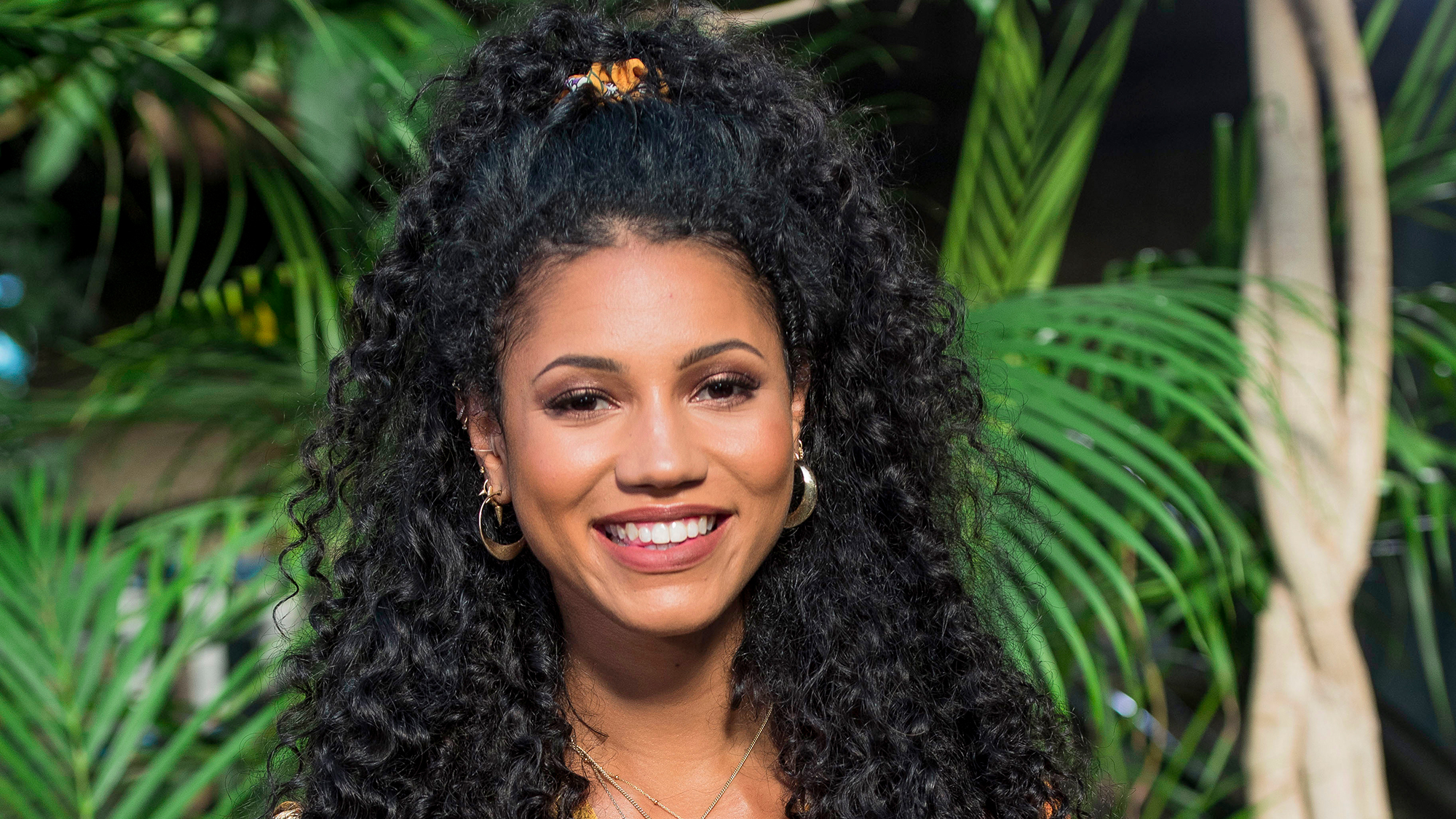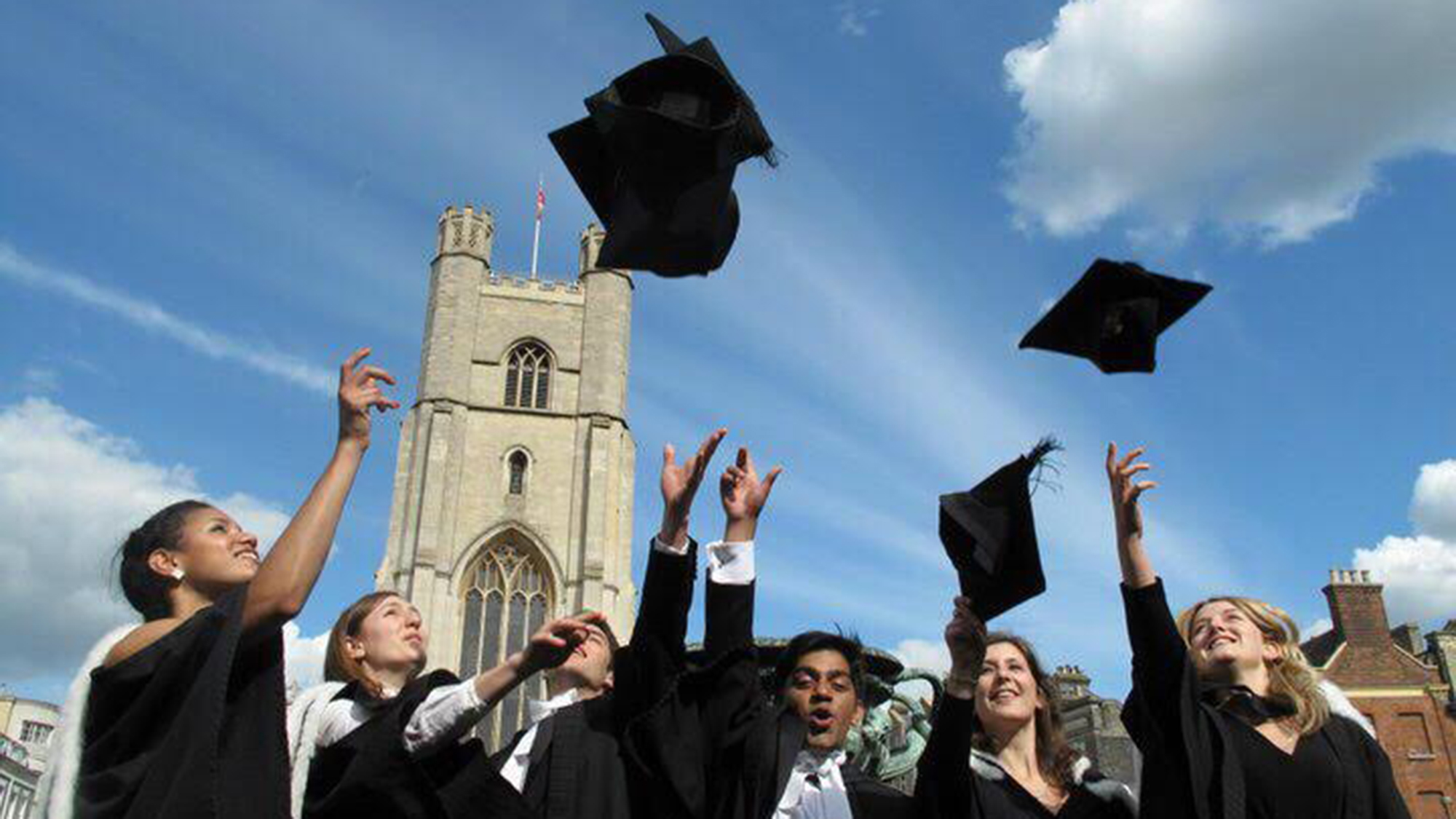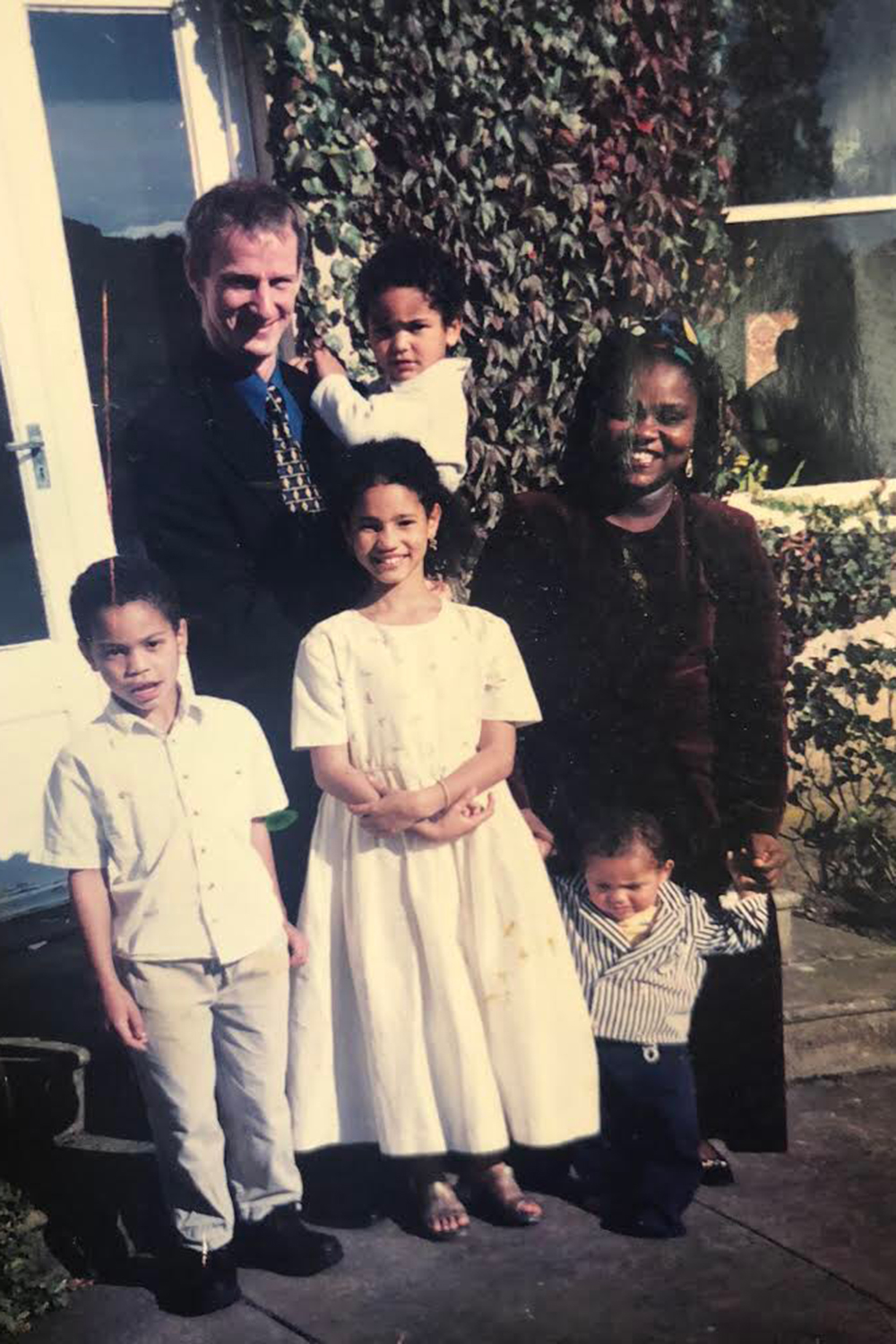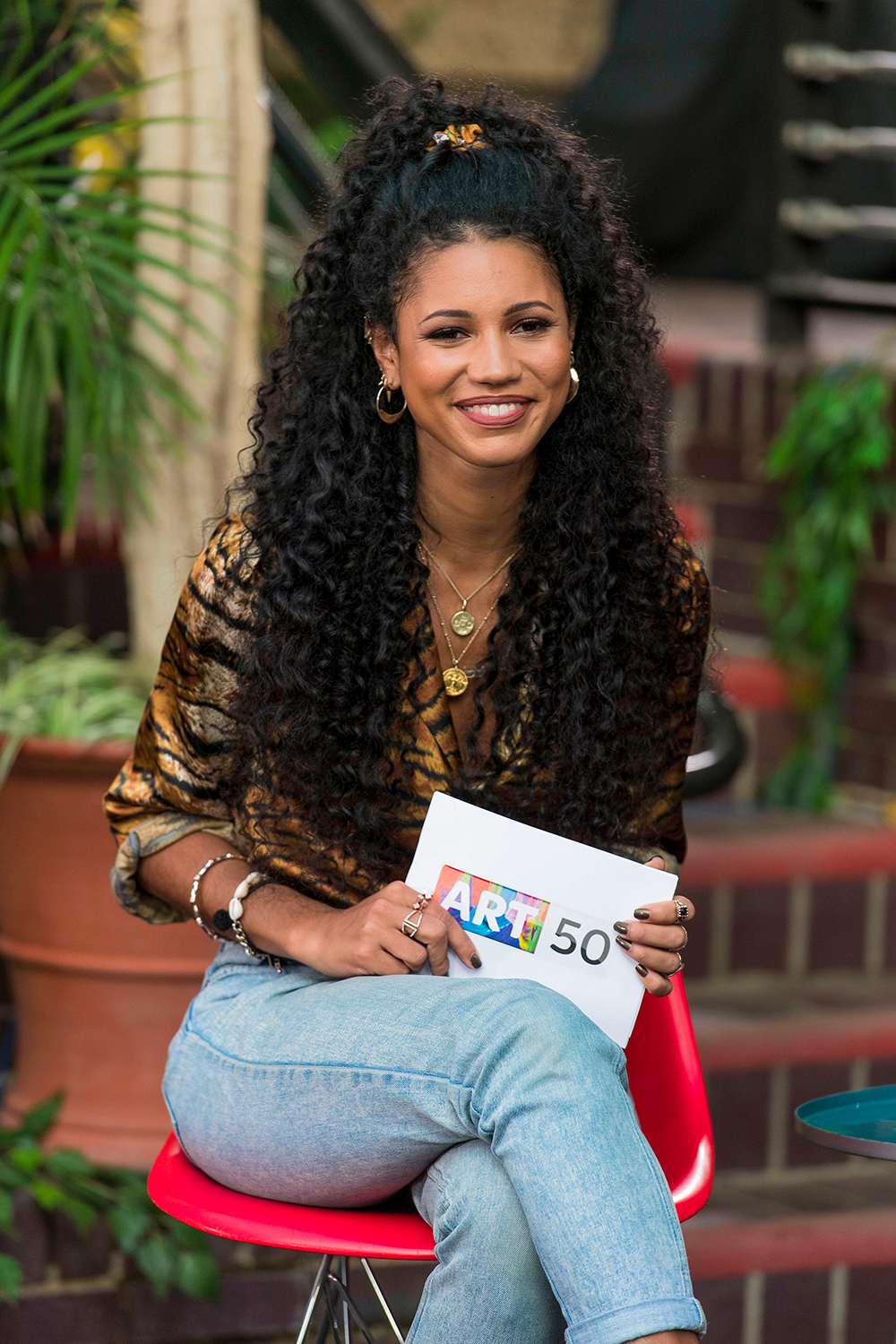TV presenter Vick Hope on belonging and what being British means to her
Vick Hope says hosting a new show about identity forced her to consider what it means to be mixed race and British in the midst of Brexit

Celebrity news, beauty, fashion advice, and fascinating features, delivered straight to your inbox!
You are now subscribed
Your newsletter sign-up was successful
Vick Hope says hosting a new show about identity forced her to consider what it means to be mixed race and British in the midst of Brexit
Words by Vick Hope
When my mum arrived in Newcastle from Nigeria at the age of 11, the residents of Eversley Place began a petition to ‘Get The Darkies Out’. It was 1971, and I'd like to think a lot has changed since then.
Certainly, growing up, it was rare that I felt unwelcome like my mum did. But rather what I have endlessly grappled with is the sense that no matter what I do or where I go, I have never felt that I belong. Born from what was -at the time - a pretty controversial collision of cultures (the night before their wedding, my parents were sat down and urged to decide whether they'd bring their future kids up Nigerian or English, because God forbid we could possibly be both), I've been called posh by my fellow Geordies, then deemed common at the University of Cambridge. I've felt too stupid and inadequate amongst my ultra-intelligent course-mates, yet too geeky and opinionated for commercial radio. I'm perpetually straddling, and not in the sexy way.

Working out who we are, who we are supposed to be, who we want to be is normal, even ...hell, especially... when it feels anything but normal. When you're a kid, fitting in is everything. I was the only mixed race pupil at my school and all I wanted was to look like everyone else. I remember begging my mum to 'wash the muddy brown off me' when she bathed me. I counted down the days until I turned 16 when I'd be allowed to straighten my 'crazy, frizzy hair', as the other girls had called it. I wanted to be white and blonde so I could be an angel in the school Nativity play. Because only the blonde girls were allowed to be the angels and angels are lovely and I just wanted to be lovely too.
But I was also jealous of my Nigerian cousins and their friends, whose seemingly profound connection to their heritage -and skin dark enough to prove it- meant they never had to fruitlessly scramble for an answer to the question, 'do you feel more black or more white?': a question so utterly ridiculous and resolutely unanswerable. And yet one that nonetheless left me feeling devoid of a definable culture to which I could feel I comfortably belonged. And that's without ever having to deal with a 'Get The Darkies Out' petition.

Two years after my mum arrived, in 1973, Britain joined the European Union. Now on the cusp of leaving, questions about belonging are more pertinent than ever, for all of us. What will Britishness look like, feel like; who are we in the wake of Brexit? These are the questions we ask in Art50 i, a project I was so passionate about getting involved with because I ask these questions every damn day. Art50 is a Sky Arts TV series and festival centred on British identity since the triggering of Article 50, explored via 50 pieces of art, showcasing everyone from painters to composers, orchestras, dance companies, poets and playwrights.
Celebrity news, beauty, fashion advice, and fascinating features, delivered straight to your inbox!
I was lucky enough to sit on the commissioning panel and present the show alongside Stephen Mangan and Joan Bakewell, hosting panels of many of the artists involved about what British identity means to them and the thousands of Brits from all walks of life who they interviewed to research their projects. Brexiteers and Remainers alike, the multiplicity and diversity of their answers was staggering: layers and layers of heritage, experience and perspective, all of which are constantly shifting and evolving as we scrabble in the dark to make our way through these uncertain times. It turns out that everything that makes us so different is actually what makes us the same, as we seek solace in community, family, shared memories and love.
It is a sentiment echoed, albeit via a VERY different medium, in the recent series of Shipwrecked which I narrated, in which beautiful, half-naked 20-somethings (at the very peak of their working-out-who-the-hell-I-am journey) choose which of two desert islands to reside on based on the other inhabitants. 'Your vibe attracts your tribe' was the overriding message, and indeed it is the people around us who shape who we become, not some arbitrarily assigned labels: 'Too common for Cambridge' and 'Too brown to be an angel' are NOT identities. And to every little girl out there working out who she's supposed to be, worried that she's too much or she's not enough: don't let anyone tell you that you are either.

Something which resonated throughout Art50 for all was a rejection of stereotypes, shallow definitions and being squished into boxes by others. And so it seems identity is dynamic, it is multi-faceted, and where the Art50 project presents many versions of Britishness in glorious technicolour, so too are our personal identities multi-layered and constantly in flux. Who says we are the same person from one day to the next? Who says I can't inhabit two seemingly opposite spaces at once? Yes we are our roots, but we are also the routes we take through life. We are where we come from but also where we are going. And Lord knows where that is. Perhaps this means at once we belong nowhere and everywhere; maybe I will never belong, maybe I always have, and maybe that's fine.
Art50 appears on Sky Arts every night between Monday 25th and Thursday 28th March at 9pm
The leading destination for fashion, beauty, shopping and finger-on-the-pulse views on the latest issues. Marie Claire's travel content helps you delight in discovering new destinations around the globe, offering a unique – and sometimes unchartered – travel experience. From new hotel openings to the destinations tipped to take over our travel calendars, this iconic name has it covered.